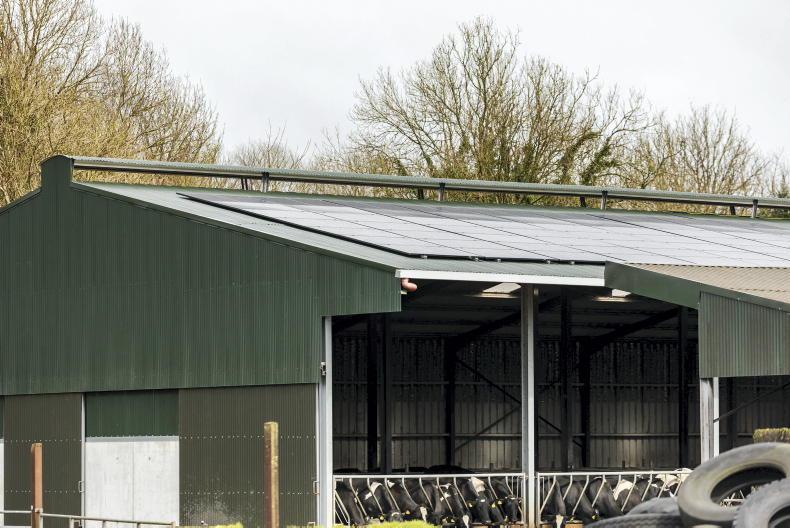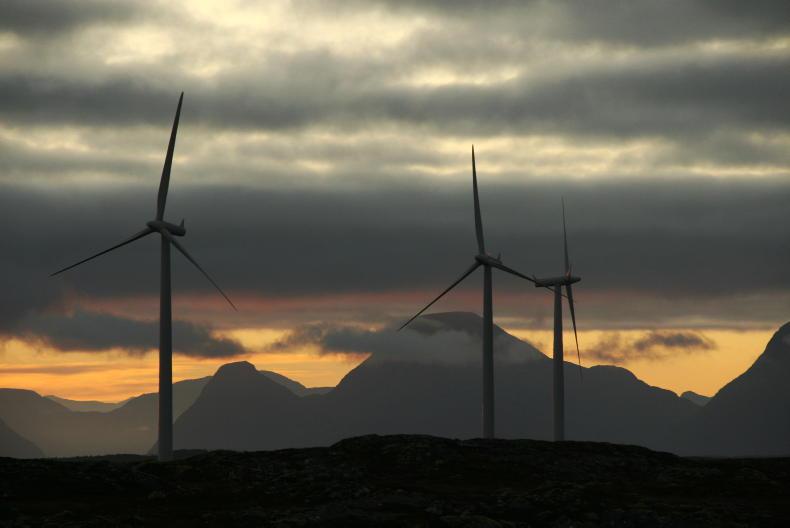There was an eclectic mix of politicians, farmers, civil servants and energy specialist at Gurteen Agricultural College’s energy day on Tuesday. Energy is where it’s at. It is a major contributor to greenhouse gases and, theoretically, farmers should be well placed to profit from any diversion to farm-produced energy. Mind you, we have a long way to go and it’s astonishing how slowly policy has developed in this country.
On a rough estimate, there are more than 7,000 biodigester units in Germany – more than 400 in Britain – about 30 in Northern Ireland and around three or four in the Republic, so what has gone wrong?
Minister for Communications, Climate Action and Environment Denis Naughten was there to deliver the pivotal policy address. But behind the easy geniality of the minister the message since last year had not noticeably changed.
There is government goodwill for the sector and the minister said that under State aid rules he had to apply to Brussels for clearance for Irish policy development in this area. The submission has been made and they hoped to have a clear path for the future by Christmas. Again, developments which farmers can actually participate in are at least six months away.
There is a lot of farmer interest in this area. The worth of solar energy produced from an acre is reckoned to be about €10,000 and we await the results of an auction process rather than a straight, feed-in tariff system for the industry to really begin. Again, that is a few months away.
Similarly, in the case of the burgeoning battery storage industry, the ESB decides who should be eligible for the necessary grid connections. I was surprised to hear so many people so critical of the monolith that is the ESB. The absence of a net metering system for consumers, in other words the direct facility to wind back a meter in proportion to the amount of electricity domestically produced, is a constant source of irritation.
There was an irony in the realisation that farming was being pinpointed as a contributor to greenhouse gases while Moneypoint continues to burn enormous quantities of coal.
The three State bodies of the ESB, Coillte and Bord na Móna were identified as driving or hindering the development of a national energy policy. The issue is too important to be left to those with such clear vested interests while putting a more broadly-based carbon-friendly farmer-involved energy industry on the long finger.
Read more
Renewable electricity schemes to generate questions at Energy in Agriculture
10 tips to lower your farm energy use
There was an eclectic mix of politicians, farmers, civil servants and energy specialist at Gurteen Agricultural College’s energy day on Tuesday. Energy is where it’s at. It is a major contributor to greenhouse gases and, theoretically, farmers should be well placed to profit from any diversion to farm-produced energy. Mind you, we have a long way to go and it’s astonishing how slowly policy has developed in this country.
On a rough estimate, there are more than 7,000 biodigester units in Germany – more than 400 in Britain – about 30 in Northern Ireland and around three or four in the Republic, so what has gone wrong?
Minister for Communications, Climate Action and Environment Denis Naughten was there to deliver the pivotal policy address. But behind the easy geniality of the minister the message since last year had not noticeably changed.
There is government goodwill for the sector and the minister said that under State aid rules he had to apply to Brussels for clearance for Irish policy development in this area. The submission has been made and they hoped to have a clear path for the future by Christmas. Again, developments which farmers can actually participate in are at least six months away.
There is a lot of farmer interest in this area. The worth of solar energy produced from an acre is reckoned to be about €10,000 and we await the results of an auction process rather than a straight, feed-in tariff system for the industry to really begin. Again, that is a few months away.
Similarly, in the case of the burgeoning battery storage industry, the ESB decides who should be eligible for the necessary grid connections. I was surprised to hear so many people so critical of the monolith that is the ESB. The absence of a net metering system for consumers, in other words the direct facility to wind back a meter in proportion to the amount of electricity domestically produced, is a constant source of irritation.
There was an irony in the realisation that farming was being pinpointed as a contributor to greenhouse gases while Moneypoint continues to burn enormous quantities of coal.
The three State bodies of the ESB, Coillte and Bord na Móna were identified as driving or hindering the development of a national energy policy. The issue is too important to be left to those with such clear vested interests while putting a more broadly-based carbon-friendly farmer-involved energy industry on the long finger.
Read more
Renewable electricity schemes to generate questions at Energy in Agriculture
10 tips to lower your farm energy use









SHARING OPTIONS